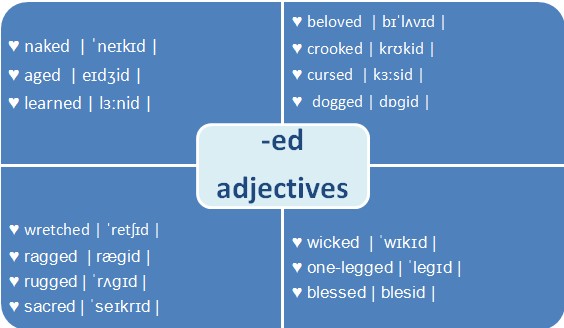If you were one of my students, you would know that one of my favourite words to use in class in EASY- sometimes I say easy peasy, but I guess it sounds the same to them. In fact, I only realized I said it so often when I saw my students looking at each other with half a smile on their faces and it got me thinking. I put two and two together and realized that, carried away by my enthusiasm, I might have been overusing the word a bit. Well, nobody is perfect! The truth is that English grammar is easy to teach and easy to understand, but pronunciation is quite another matter.
Pronunciation!!! You can only sympathise with students when after years of teaching them how to pronounce the -ed ending of regular verbs, they suddenly find words such as naked, which they automatically pronounce /neikt/. You might not believe me, but almost feel like I need to apologize and this is one of the few times when I need to say … Ok, this is not that easy!!
The thing is that some adjectives ending in -ed have a special pronunciation and the -ed is not pronounced /t/ or /d/ but /id/. Let’s have a look at them

To make matters worse, aged is pronounced | eɪdʒd | when it means years old ( my grandmother, aged 93, is a very smart person) or when it is a verb but, when it is an adejctive it is pronounced | eɪdʒid |
♥ All the young men went to fight in the war; and only the aged | eɪdʒid | and infirm remained behind.
Other adjectives ending in -ed follow the rule for the pronunciation of the -ed ending, ie, pronounced /id/ only after /d/ ot /t/.
Keep posted!


